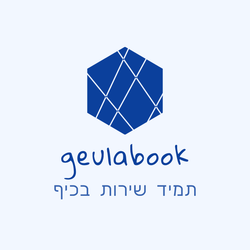Before we talk about the translation of Onkelos - אונקלוס we will try to find out one detail and that is who is Onkelos according to Jewish sources and according to our tradition. Midrash Tanhuma in Parashat Mishpitim brings a negotiation between Onkelos and his uncle Hadrianus the emperor. In this Midrash, Onkelos is also mentioned as Akilas - עקילס. In the Babylonian Talmud the name Akilas is not mentioned at all, and on the other hand it is stated that the uncle of Onkelos was Titus the emperor. According to historical data Onkelos was a Roman national who converted to Judaism in Tannaic times (c. 35–120 CE). He is considered to be the author of the Targum Onkelos (c. 110 CE). What is fascinating in the Jerusalem Talmud is that the name Onkelos is not mentioned at all, but only the name Akilas. The stories about Achilles in the Jerusalem Talmud are very similar to the stories about Onkelos in the Babylonian Talmud. All these data raise the question of whether Onkelos and Akilas are one person or two people. Scholars over the generations have been divided on this question. It is possible to say that there were two people with a similar name, from the Roman noble family. One was the nephew of Hadrian and the other was the nephew of Titus. Both converted, one wrote a Greek translation of the Torah and the other taught an Aramaic translation. On the other hand, it is possible that it is all one story, about one person, that the Babylonian Talmud and the Jerusalem Talmud had a disagreement about various details of his identity. The use of both names in one section of the midrash seemingly strengthens the claim that it is one person.
Onkelos HaGer - אונקלוס הגר converted in the 1st century before the Bar Kochba rebellion at the end of the Tanaim period, and fled to the Land of Israel because of the terror of his uncle the emperor, joined the sages of Yavneh and learned from them. Onculus became a student of Rabbi Eliezer and Rabbi Yehoshua (Bereita in the Talmud Babylonian treatise Baba Batra, page 24, p. 1).
The midrash tells the story of his conversion. According to the Midrash, Onkelos was a nephew of Hadrian Caesar, who received permission from his uncle to go out into the world and learn anything he desired. A slightly different version of the Babylonian says that Onkelos was the nephew of Titus. At that time Onkelos was already planning to convert, and was afraid of his uncle. Therefore he came before him and asked him to go all over the world and make goods.
This is how it is stated in the Gemara: First, Onkelos conjured up his uncle Titus - who was responsible for the destruction of the Second Temple and its desecration, and asked him: "Who is important in the world to come?". "The people of Israel" replied Titus. Onkelos asked: "What do you say, is it worth converting and connecting with them?". He replied: "They have many mitzvahs and you will not be able to comply with all of them and sustain; go and challenge them in this world and be a leader."
Onkelos asked: "What is your punishment for destroying the temple?" Titus said: "Every day they pick up my ashes, rebuild me, judge me in agony and then burn me; and again, God forbid..."
The Targum Onkelos - תרגום אונקלוס is written in an Aramaic dialect known as Middle Aramaic - ארמית, but there is no certainty as to whether the dialect leans toward Eastern Aramaic (spoken in Babylon) or Western Aramaic (spoken in Israel). This question is of great importance, because identifying the dialect indicates the geographical origin of the translation. The currently accepted opinion in research is that the translation was originally written in the Land of Israel, but at some point it moved to Babylon, where it was edited and scored - when the editing left intact the Land of Israel dialect.
The Onklos translation is known as a translation by way of simplification, meaning an almost literal translation of the Hebrew original without deviations and additions of any kind. The reasons for deviations from the literal translation are generally divided into several types:
Removal of fulfillment - when phrases appear in the verses that have the purpose of fulfilling God or giving him a human character, the verse is translated without any fulfillment or personification. So, for example, in Parashat Balak it is written "And God loved Balaam" while in the translation it is written "Vere mimer man kedem yelot Balaam" meaning that Balaam does not meet God himself, but the word of God. For this reason, God's name is also sometimes replaced by the words "מימרא דהי''(God's Word) or "שכינתא". Halachic commentary - sometimes hints about Halachic matters are incorporated into the translation. For example: "You shall not cook a goat in its mother's milk" (Exodus 23:19) is translated: "You shall not eat meat in milk" (You shall not eat meat in milk). The phrase "in a person's blood will be shed" (Genesis 9:6), which prescribes the death sentence for murdering a soul, is translated: "Basahdin mimmar diniya damiya ytshad" (by witnesses, according to the ruling of judges, his blood will be shed).
If you are interested in the translation of Onkelos , visit our online store and choose and purchase the Torah book that fits with fast delivery all over the world>>>

